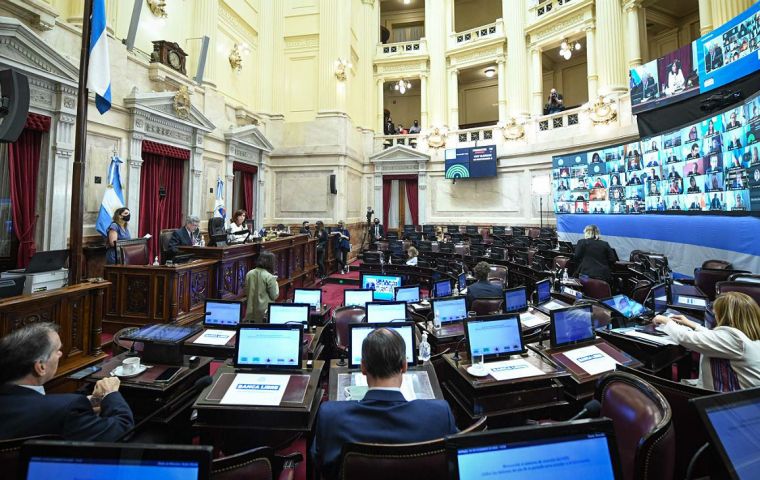
BUENOS AIRES, Dec 9 (NNN-MERCOPRESS) — Argentina has passed a new wealth tax to help the government pay for health supplies and economic relief measures amid the ongoing coronavirus pandemic.
Lawmakers in the Senate passed the bill, dubbed the “millionaire’s tax,” by 42 votes to 26 late on Friday.
It means those with a personal fortune of over 200 million pesos (US$ 2.4 million) — approximately 12,000 people — will have to pay a one-off tax of at least 2%.
The populist government has said the legislation could see Latin America’s third-largest economy collect up to US$ 3.7 billion, with the funds used to buy medical equipment and supplies, provide support to small and medium-sized firms, and to assist poor neighborhoods.
Argentina’s population of 45 million has been hit hard by the coronavirus pandemic, becoming only the fifth country worldwide to surpass 1 million confirmed infections in October. To date, it has recorded almost 1.5 million Covid-19 infections, with 39,770 related deaths.
Strict public health restrictions have also hampered an economy already reeling from high levels of unemployment, sky-high inflation rates, rising levels of poverty and massive government debt.
The OECD has forecast Argentina’s real GDP to contract by 12.9% this year and expects the country’s recovery from the coronavirus pandemic to lag behind every other major economy.
One of the authors of the new wealth tax estimated it would impact 0.8% of the country’s taxpayers.
It “is extraordinary because the circumstances are extraordinary,” Senator Anabel Fernandez Sagasti, a lawmaker in the country’s ruling party, said via Twitter on Saturday.
“We must find points of connection between those who have the most to contribute and those who need it.”
Of the proceeds raised by the levy, allegedly 20% would go toward medical supplies, 20% would go to small and medium-sized companies, 15% to social developments, 20% to student scholarships and 25% to natural gas ventures.
Opposition lawmakers have criticized the new measures, saying the taxes are unlikely to be a one-off and suggesting they could further deter foreign investment. — NNN-MERCOPRESS
